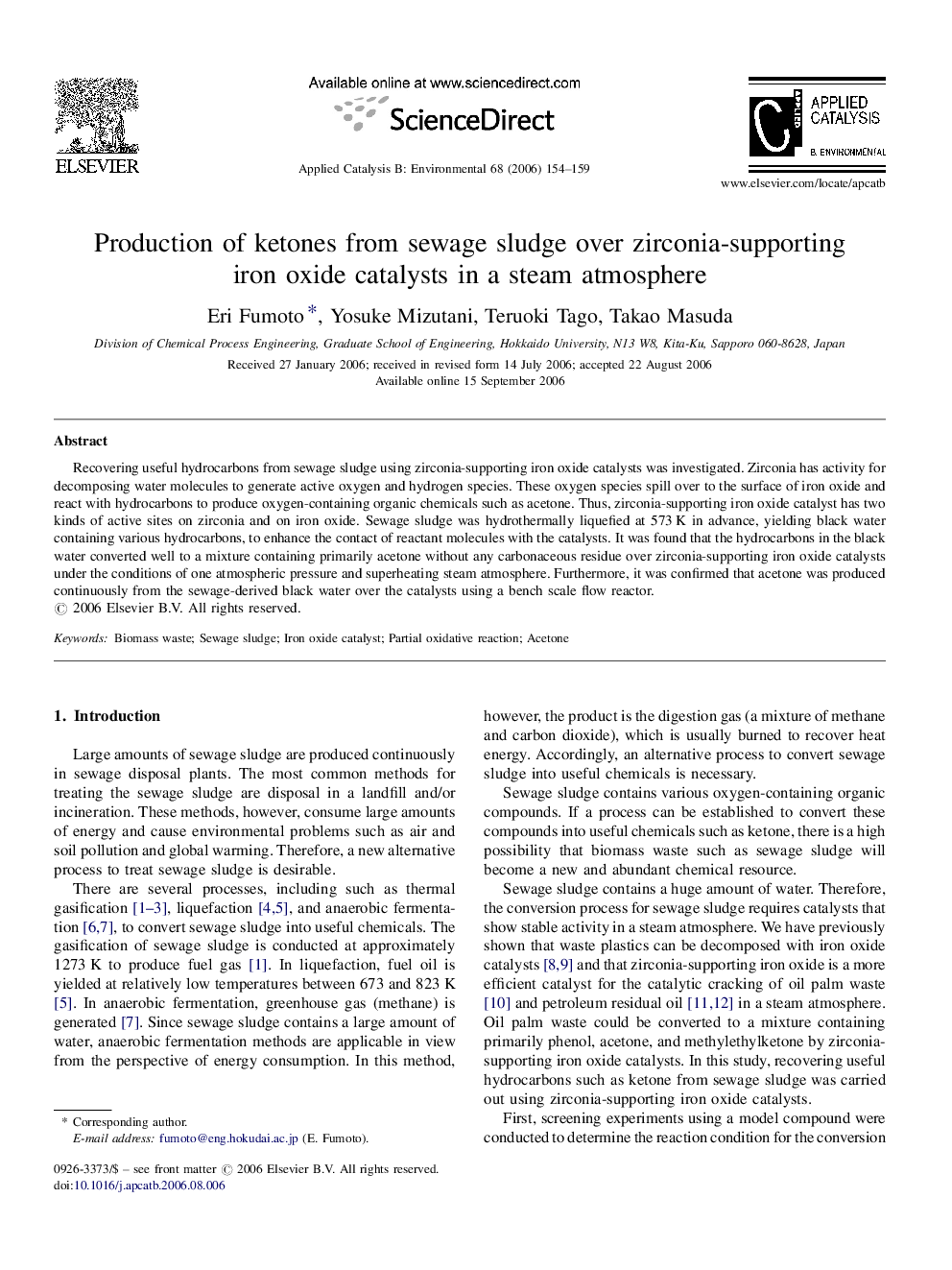| Article ID | Journal | Published Year | Pages | File Type |
|---|---|---|---|---|
| 48925 | Applied Catalysis B: Environmental | 2006 | 6 Pages |
Recovering useful hydrocarbons from sewage sludge using zirconia-supporting iron oxide catalysts was investigated. Zirconia has activity for decomposing water molecules to generate active oxygen and hydrogen species. These oxygen species spill over to the surface of iron oxide and react with hydrocarbons to produce oxygen-containing organic chemicals such as acetone. Thus, zirconia-supporting iron oxide catalyst has two kinds of active sites on zirconia and on iron oxide. Sewage sludge was hydrothermally liquefied at 573 K in advance, yielding black water containing various hydrocarbons, to enhance the contact of reactant molecules with the catalysts. It was found that the hydrocarbons in the black water converted well to a mixture containing primarily acetone without any carbonaceous residue over zirconia-supporting iron oxide catalysts under the conditions of one atmospheric pressure and superheating steam atmosphere. Furthermore, it was confirmed that acetone was produced continuously from the sewage-derived black water over the catalysts using a bench scale flow reactor.
